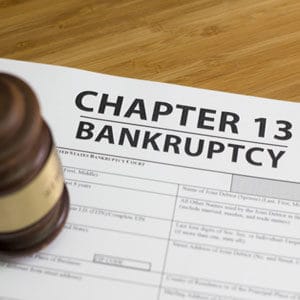 Chapter 13 Bankruptcy In Orlando FL
Chapter 13 Bankruptcy In Orlando FL
Determine If It’s The Right Bankruptcy Plan
Are you searching for debt relief? Struggling through the process of trying to file for bankruptcy? Don’t wait another minute, call Solomita Law today. With our law firm you can rest easy knowing you’ve partnered with experienced professionals you can trust. One of the most important decisions you’ll face is determining which chapter of bankruptcy you should be filing for. Chapter 13 bankruptcy allows individuals with regular income to repay some or all of their debts using a court-proposed payment plan. Solomita Law has spent nearly a decade advising individuals through the chapter 13 bankruptcy process. Let us help you down the path toward personal freedom and financial confidence, contact us today.
Chapter 13 Bankruptcy Requirements
How Do You Qualify?
In order to be eligible for chapter 13 bankruptcy, the following requirements must be met:
- Only individuals qualify. Business-related debts cannot be settled using chapter 13 bankruptcy unless you’re filing as a sole proprietor or owner of a company.
- Unsecured debts cannot exceed $336,900.
- Secured debts cannot exceed $1,010,650.
- You must have sufficient enough income for the bankruptcy court to confirm your repayment plan.
- You must be at least 180 days removed from a prior petition being dismissed.
 How Chapter 13 Cases Unfold
How Chapter 13 Cases Unfold
What To Expect If You’re Filing
- When you partner with Solomita Law and officially file for chapter 13 bankruptcy, creditors will be barred from taking any action to collect your debt.
- Creditors will be given information on your case, which will include confirmation hearing dates, deadlines to file their claims, and a summary of your payment plan. Creditors can file objections with your plan at this stage if they wish.
- You’ll be required to provide your most recent tax return to the trustee, which may require additional documentation.
- After payments begin under your plan, you’ll attend the meeting of the creditors with your trustee, followed by a confirmation hearing with your attorney.
- Creditors are then allowed to file Proofs of Claim, which outline the amount they’re owed. These claims are subject to objections from either you or your trustee.
- You’ll be required to continue to comply with the approved plan and make payments.
- You’ll complete a personal finance management course.
- Your case will be discharged at the conclusion of the payment period.



